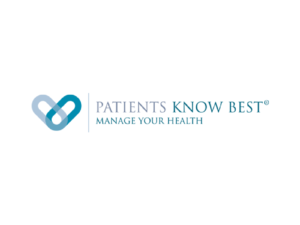The patient empowerment portal called Patients Know Best (PKB), originally developed in the UK, is a good example of a modern system for personal health records (PHRs). In Patients Know Best, patients can digitally view and manage their own health information whenever they wish. The portal was founded in 2008 by Dr Mohammad Al-Ubaydli, who was both a doctor and a patient. During his medical consultations he noticed that the exchange of information between health care providers did not function as well as it should. That resulted in higher costs and time investments for patients, doctors and society. He concluded that patients deserved to have a central place in information sharing. Since 2008, the use of the portal has soared. In the UK alone, the patient-managed personal health record system is now available to 6 million people, and it can meanwhile be accessed by patients at over sixty hospitals in the UK, Australia, the USA, Ireland, Germany, Hong Kong and the Netherlands.
PKB serves as a connecting element between patients and practitioners. A broad spectrum of providers – including hospitals, clinics, GPs, pharmacies, and health and social care agencies – are now connected to the platform. Most types of digital records they keep can be directly linked together. It is also possible to link the online medical file to data provided by intelligent devices used by patients in their homes. PKB has even been described as ‘the medical Facebook’, by virtue of its intuitive interface reminiscent of social media. Fortunately, that comparison misses the mark when it comes to data security. All information is doubly protected by a firewall and encryption. Solely the individual users are able to decrypt their information. This enables full patient self-direction. The user can determine which people have access to each separate section of the records. And PKB fully conforms to the GDPR standards.
The advantages of using PKB are legion. Diagnoses and treatment interventions by health care providers are facilitated by the longer-term tracking and recording of health symptoms, as well as by the wealth of knowledge generated in part by the combining of data from multiple sources. The need for face-to-face consultations with professionals is reduced by the built-in protocols for self-management and self-care, as well as by remote consulting functions such as chatting and video telephony. PKB is a good illustration for the entire range of components a modern personal health record ought to contain: it is intuitive, it facilitates patient self-direction, it is secure, it is connected to health care providers, and it is interoperable with other devices and systems. The broad-ranging functionality, the professional implementation and the user-friendly login procedure have also been cited as success factors. A promising sign is that PHRs are receiving long-term funding from sources such as public authorities and health insurers[1]. Thanks in part to the intensive use of PKB, empirical validation is also possible. It is therefore expected to satisfy the Dutch MedMij standards[2-4].
Concerns have been raised about the actual use of personal health records by patients.31 If use is too low, the investments will not weigh up against the costs. Some GPs have also expressed misgivings about the usefulness and advisability of PHRs. That is one reason why large-scale adoption in France has failed. Even in exemplary countries such as Sweden and Estonia, less than 3 per cent of the users log in at least monthly. That makes PKB is the only positive exception. It is therefore in the best interest of all countries to learn lessons from PKB and the factors that have made it a success. Only then can the great potentials of personal health records become a reality.
References
- Doctorpreneurs. Interview with Dr. Mohammad Al-Ubaydli, Founder & CEO of Patients Know Best 2012. Available from: http://www.doctorpreneurs.com/interview-with-dr-mohammad-al-ubaydlifounder-ceo-of-patients-know-best/. Retrieved from 8-12-2018
- Patients Know Best. Patient portal 2019. Available from: http://www.patientsknowbest.com/. Retrieved 1-12-2018
- Health D. Welsh patients know best after being given access to their records. 2018
- Carepoint. Patients Know Best. 2019

